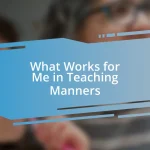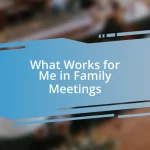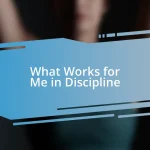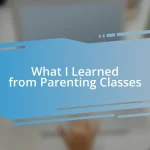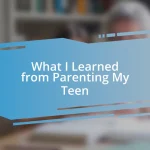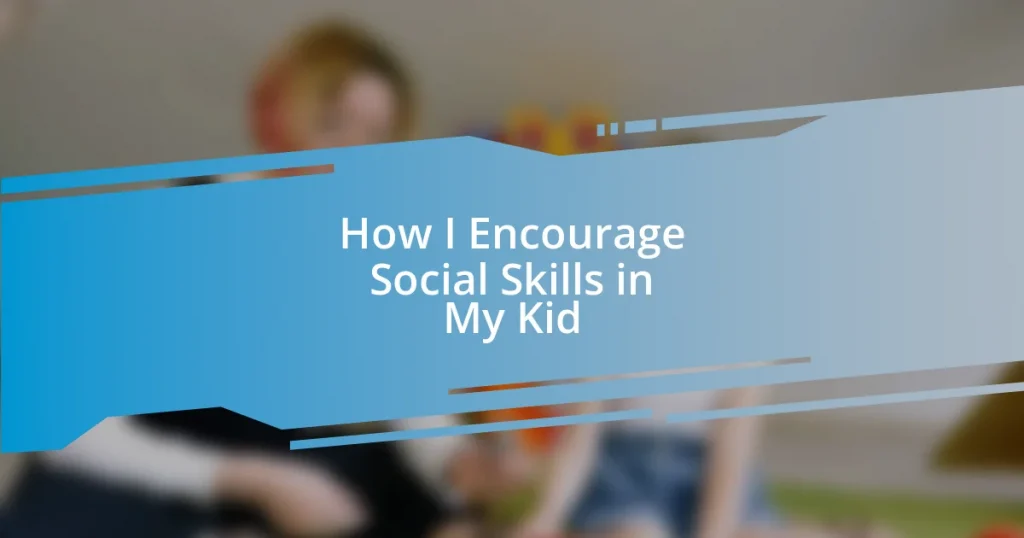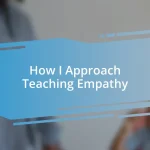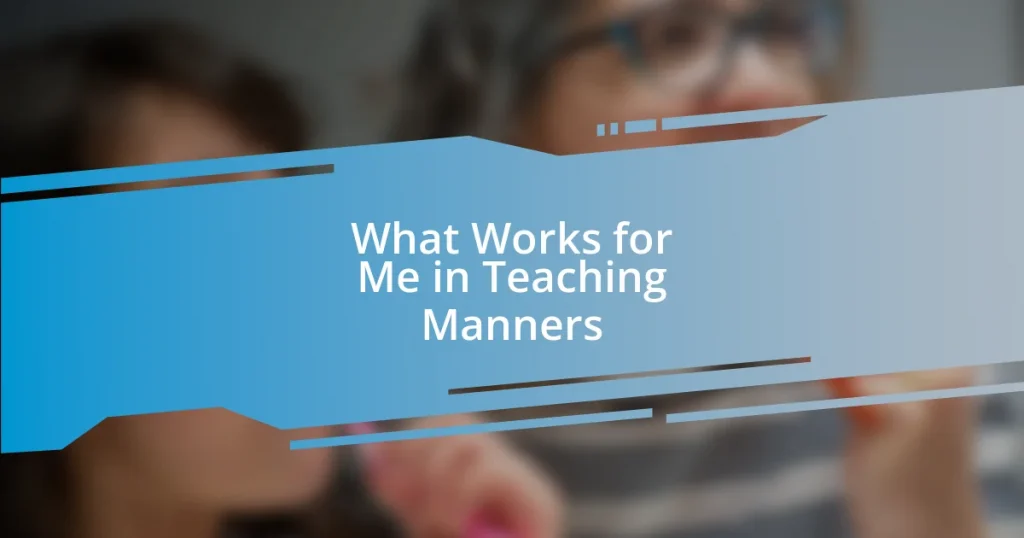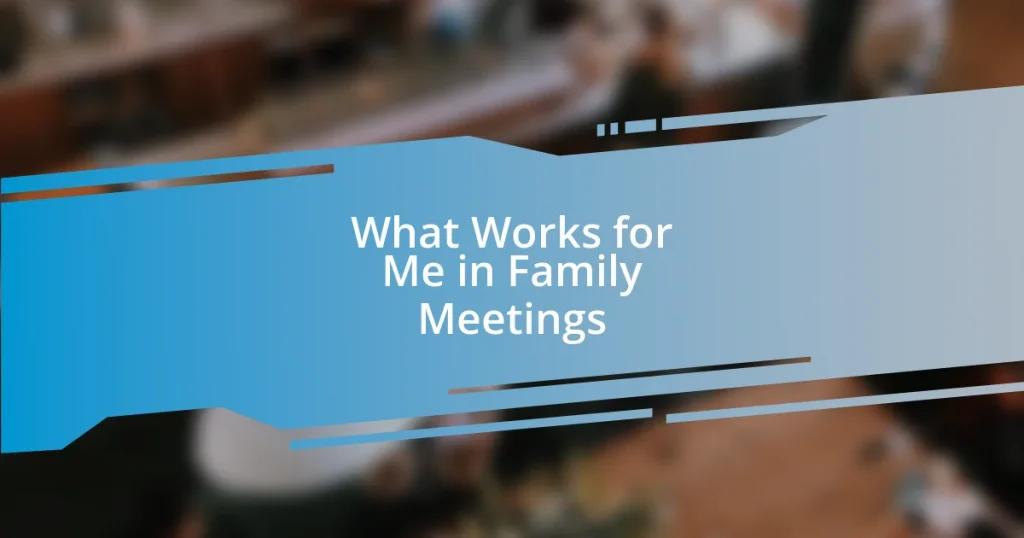Key takeaways:
- Social skills are essential for healthy relationships and effective communication, and parents play a crucial role in fostering these skills from an early age through various activities.
- Creating a safe and open environment at home encourages children to express themselves, practice active listening, and understand emotional cues, which enhances their social interactions.
- Reinforcing progress through praise helps build children’s confidence and resilience, emphasizing the importance of effort in developing social skills rather than just focusing on outcomes.
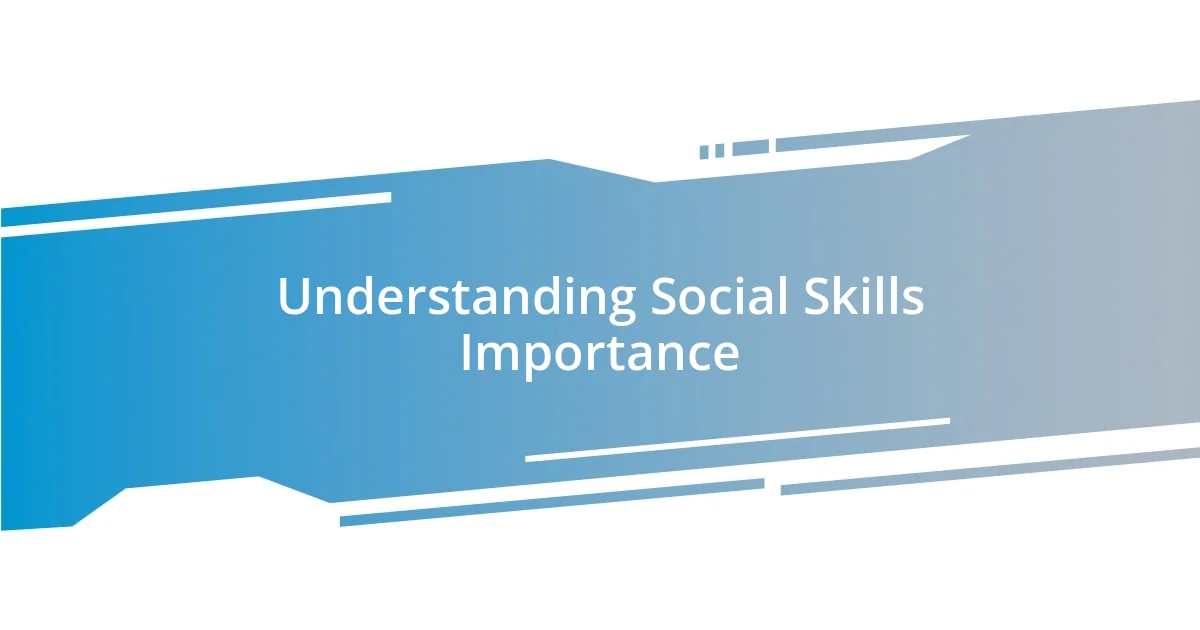
Understanding Social Skills Importance
Social skills form the backbone of healthy relationships and effective communication. I always remind myself of this when I see my child interact with peers. Watching them navigate friendships is a true testament to their developing social acumen.
Consider this: when my child struggles during group play, it’s more than just a moment of discomfort; it’s an opportunity for growth. I often think back to my own childhood. I learned to read social cues and respond with empathy through similar experiences. Many parents may not realize that these lessons pave the way for confidence, resilience, and understanding in future interactions.
The importance of social skills extends beyond the playground; they are crucial in our daily lives, even as adults. I recall a time at work when effective communication saved a project from falling apart. If we don’t equip our children with the tools to communicate effectively, how will they build the connections essential for success in life? It’s a thought that pushes me to actively encourage my child’s social development.
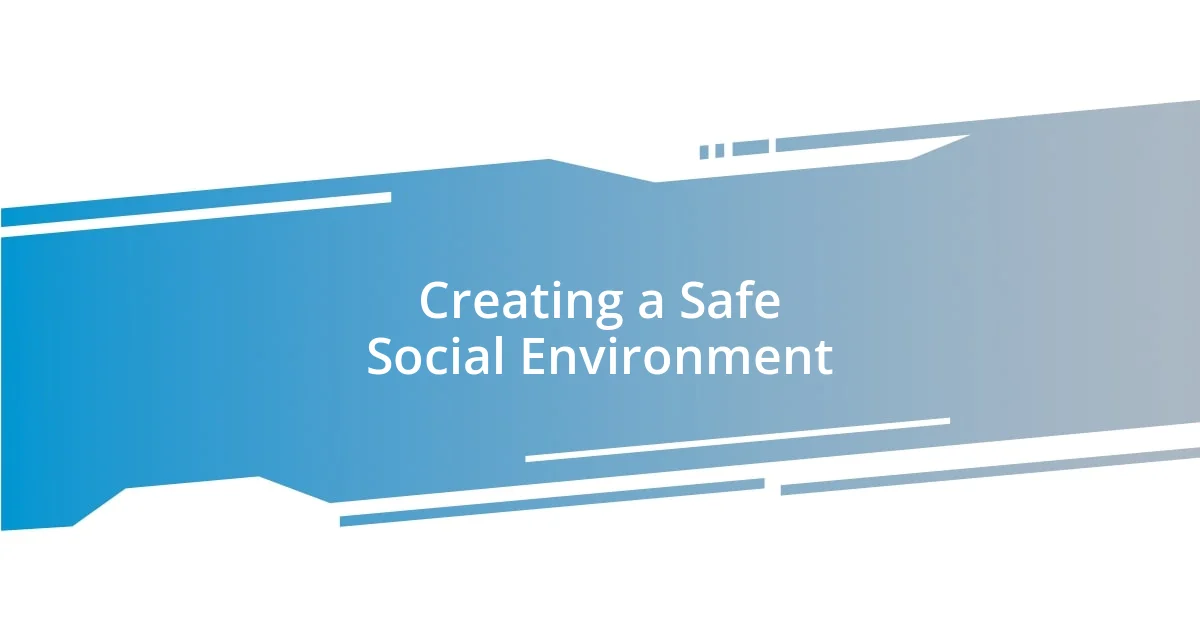
Creating a Safe Social Environment
Creating a safe social environment begins at home. I often remind my child that it’s okay to express their thoughts and feelings openly. When I create a space where they feel heard and valued, I notice a remarkable difference in their interactions with others.
Here are some practical steps I take to foster this environment:
- Model Open Communication: I share my own thoughts and feelings, demonstrating that it’s normal to discuss emotions.
- Encourage Active Listening: I engage in conversations where we both practice listening and responding, reinforcing the importance of understanding others.
- Establish Clear Boundaries: Together, we discuss what respectful behavior looks like, ensuring my child knows what’s acceptable in social interactions.
- Promote Empathy: I often read stories together, highlighting characters’ feelings, which sparks discussions about how others might feel in different situations.
- Celebrate Small Wins: When my child successfully interacts with peers, I make sure to acknowledge and celebrate those moments to build their confidence.
I also believe that facilitating playdates in a relaxed setting can make a huge difference. I recently hosted a small gathering at our home, and it was heartwarming to see my child shine as they navigated their friendships. I observed them being more animated and open when they felt secure in familiar surroundings. It reassured me that creating a safe space isn’t just about physical comfort; it’s about emotional safety, too.
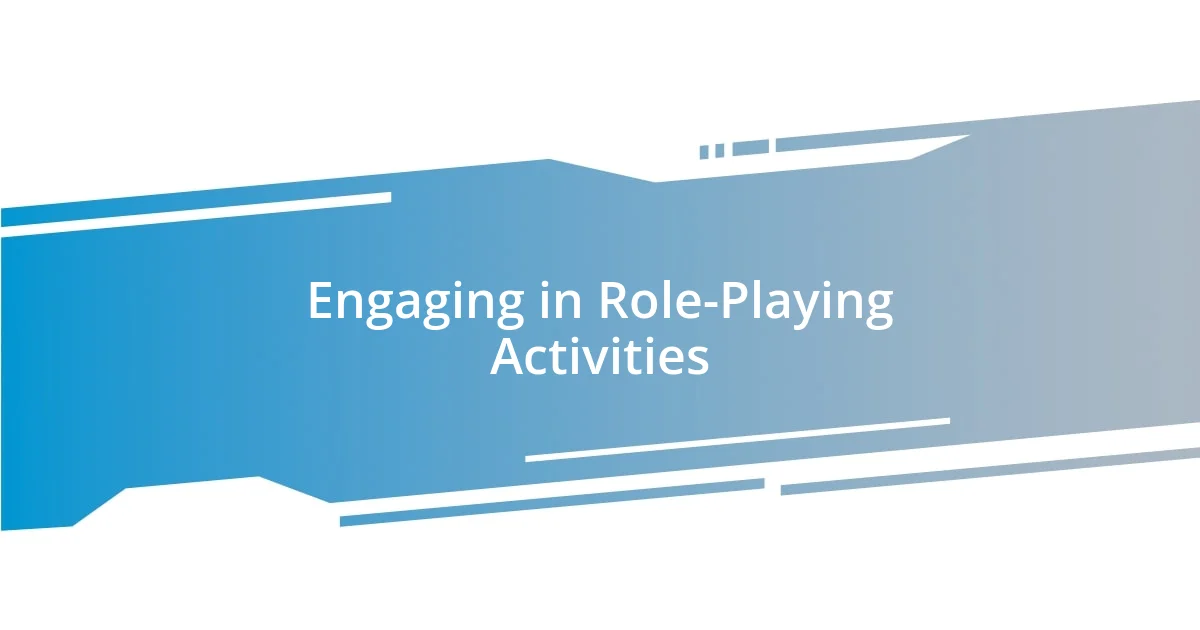
Engaging in Role-Playing Activities
Engaging in role-playing activities has been a game-changer for my child’s social skills development. I remember the first time we staged a simple grocery store scenario at home. My child took on the role of the cashier, and I was the customer. Watching them mimic real-life conversations and even express frustration when I asked tricky questions brought a huge smile to my face. These playful experiences create a safe space to practice social interactions without the pressures of real-life settings.
As we dive deeper into various role-playing scenarios, I often choose themes that spark my child’s imagination—like being superheroes or animals. This approach not only makes the experience fun but also teaches them how to express different emotions and perspectives. For instance, pretending to be a brave knight helped them learn how to handle disappointment when things didn’t go as planned. This emotional exploration, set in a fantasy world, allows me to guide them gently through social challenges, enhancing their emotional intelligence while building their confidence.
Through these engaging role-play sessions, I’ve noticed that my child develops better conversational skills and learns the importance of turn-taking without realizing they are also learning valuable social skills. Observing their growth during these activities fills me with pride. Role-playing not only enriches our bond but also equips my child with the tools they need to navigate social situations in a more empathetic and effective way.
| Role-Playing Activity | Skills Developed |
|---|---|
| Grocery Store | Conversational practice, listening, problem-solving |
| Superhero Adventures | Emotional expression, empathy, teamwork |

Encouraging Group Play Opportunities
Fostering group play opportunities has been a priority in our home, and I’ve found that inviting friends for activities really does wonders. Just last weekend, I set up a mini treasure hunt in the backyard. My child not only took the lead in directing the game but also learned how to cooperate with others as they strategized together. Have you ever noticed how kids naturally start to communicate and problem-solve when they’re having fun? It’s like watching little teamwork experts in action!
I also make it a point to involve my child in community events, like sports or local festivals. I remember the joy on their face when they joined a soccer team for the first time. Initially shy, they gradually opened up to both teammates and opponents, learning not only about the sport but also about fairness and respect for others. It’s incredible how these shared experiences can strengthen bonds and promote social skills.
Additionally, I believe that initiating shared projects boosts collaboration. We’ve tackled simple crafts or cooking tasks with friends, which not only enhances creativity but also encourages teamwork. I recall a memorable afternoon when my child’s friends came over to make homemade pizza. Seeing them share toppings and negotiate whom to put what where was both chaotic and delightful. Such moments reveal how group play isn’t just fun; it’s vital for nurturing important life skills.
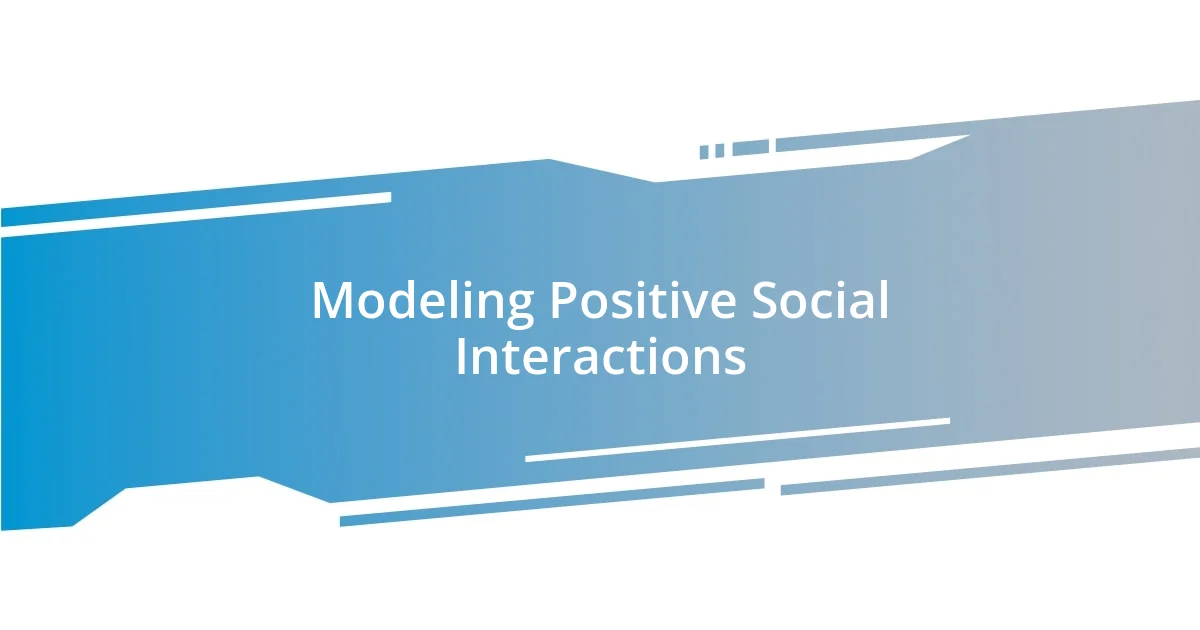
Modeling Positive Social Interactions
Modeling positive social interactions has been an eye-opening journey for me and my child. I remember a time when we were waiting in line at the grocery store, and I made a point to smile and greet the cashier warmly. My child watched closely, and later, they surprised me by doing the same when it was our turn. It’s fascinating how kids pick up on our cues—subtle actions like eye contact and a friendly tone speak volumes.
I often find myself engaging in conversations with neighbors or strangers to showcase how to navigate social exchanges. Recently, while chatting with a neighbor about gardening, my child listened intently. They saw how I asked questions and showed genuine interest in the neighbor’s responses. It made me proud when my little one chimed in with related thoughts. Those encouraging moments of connection are where I feel we grow together in social understanding.
Sometimes, I wonder if I’m doing enough. I actively choose to let my child see and hear how I resolve misunderstandings or show patience when someone makes a mistake. For instance, one evening, a delivery mix-up had me speaking calmly to the customer service representative. My little one absorbed this scene and later approached me, asking why I didn’t get upset. It’s these teaching moments, grounded in real-life experiences, that provide rich opportunities for my child to learn the essence of kindness and patience.
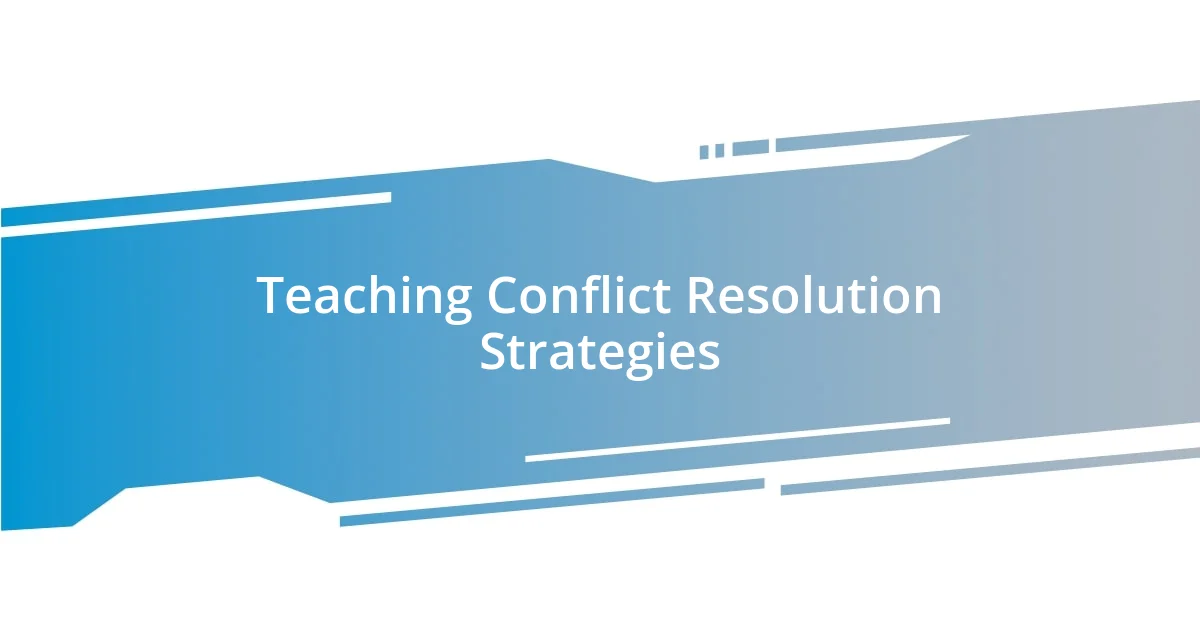
Teaching Conflict Resolution Strategies
Teaching my child about conflict resolution strategies has truly been a rewarding challenge. One day, I witnessed two kids arguing over a toy at a playground. Instead of stepping in right away, I quietly encouraged my child to observe and think about what could be done. After a while, they suggested a compromise—sharing the toy for a set amount of time. I was astounded at how instinctively my child recognized the importance of fairness and had internalized the idea of negotiation.
During family discussions, we often talk about feelings and how to express them constructively. Just last week, we had a heart-to-heart about a disagreement they had with a friend. I encouraged them to use “I” statements, like “I felt sad when…” to communicate their feelings. It seemed so simple, yet I could see the lightbulb moment—a shift in their approach to the situation that emphasized empathy. How empowering it is to see them take ownership of their emotions!
Another effective strategy I’ve found is role-playing various scenarios. I remember one time we acted out a situation where someone accidentally knocked over a game. My child played both roles, first as the upset player and later as the one who caused the accident. Through this exercise, they learned how to apologize sincerely and how to accept an apology gracefully. It was a fun yet profound way to explore the nuances of conflict resolution, transforming what could have been a stressful situation into a learning opportunity. What I appreciate most is how these experiences shape my child’s ability to navigate the complexities of relationships.
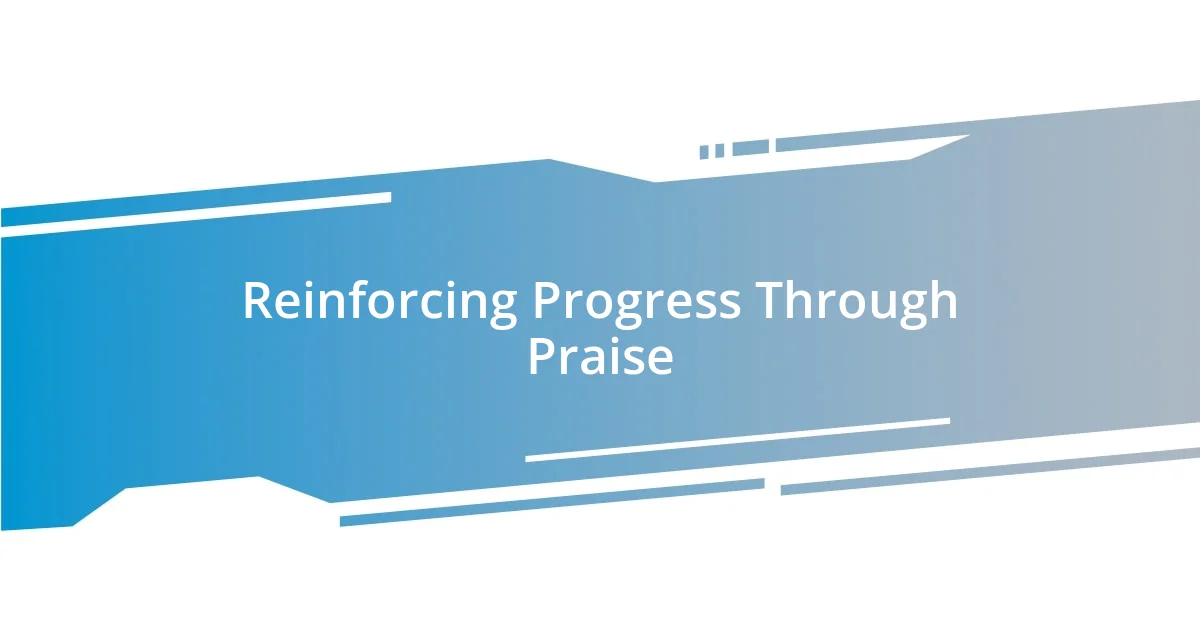
Reinforcing Progress Through Praise
One of the most impactful lessons I’ve learned in reinforcing my child’s social skills is the power of praise. After my child successfully initiated a conversation with a new friend at school, I made a point to highlight that moment. “I noticed how brave you were to say hello!” I said, and I could see their face light up with pride. This kind of acknowledgment not only boosts their confidence but helps them understand that positive social interactions are worth celebrating.
My experience has shown me that it’s not just praise about the end result that matters; it’s about recognizing effort along the way. The other day, my child made a genuine attempt to invite a classmate to play but faced rejection. Instead of focusing on the outcome, I gently reminded them, “I really admire how you put yourself out there. That takes courage!” This reinforced the idea that social skills are developed through practice, even when things don’t go perfectly.
I often wonder about the long-term effects of this reinforcement. It encourages persistence and resilience in my child. When I offer praise, it feels like I’m laying a foundation for their future social interactions. They learn that making an effort matters, which I believe fosters a growth mindset. As they hear my encouragement each time they take a step forward, they’re being equipped with the belief that they can handle social situations, no matter how daunting they may seem.

